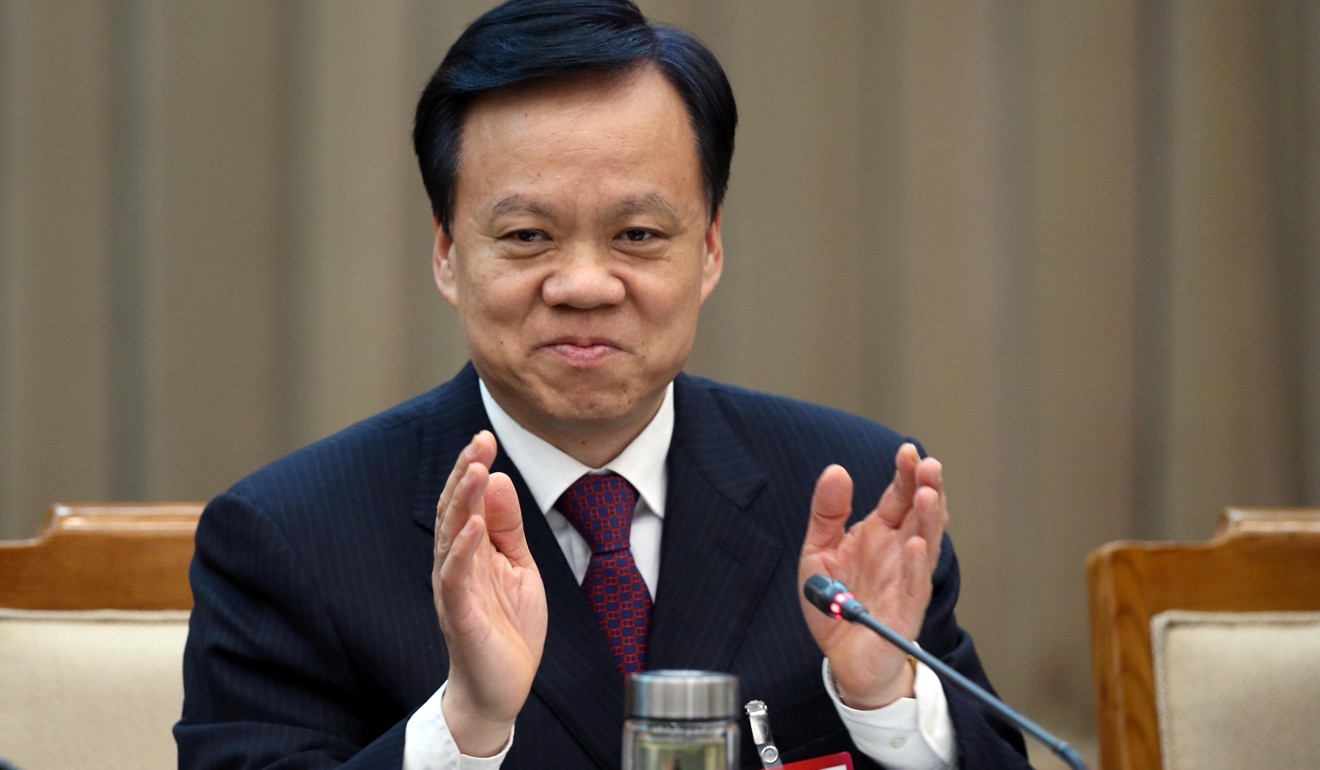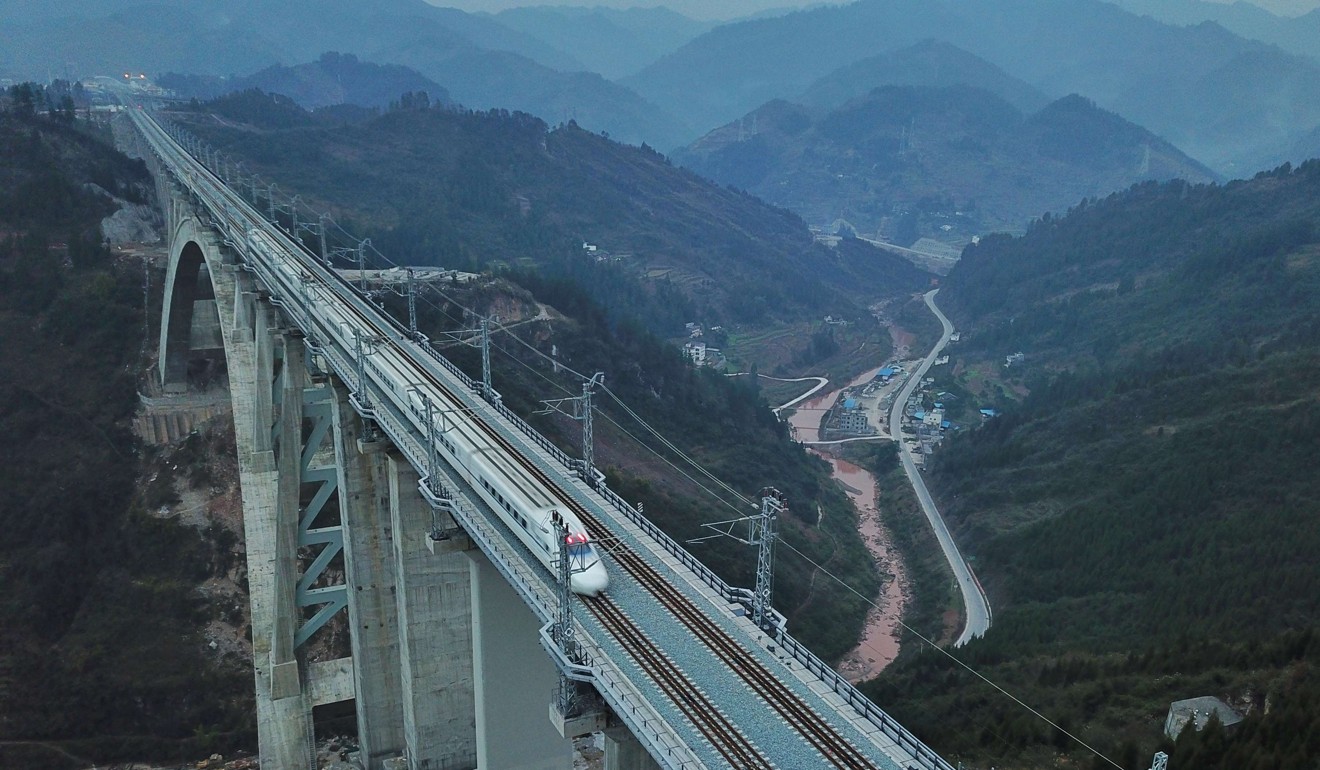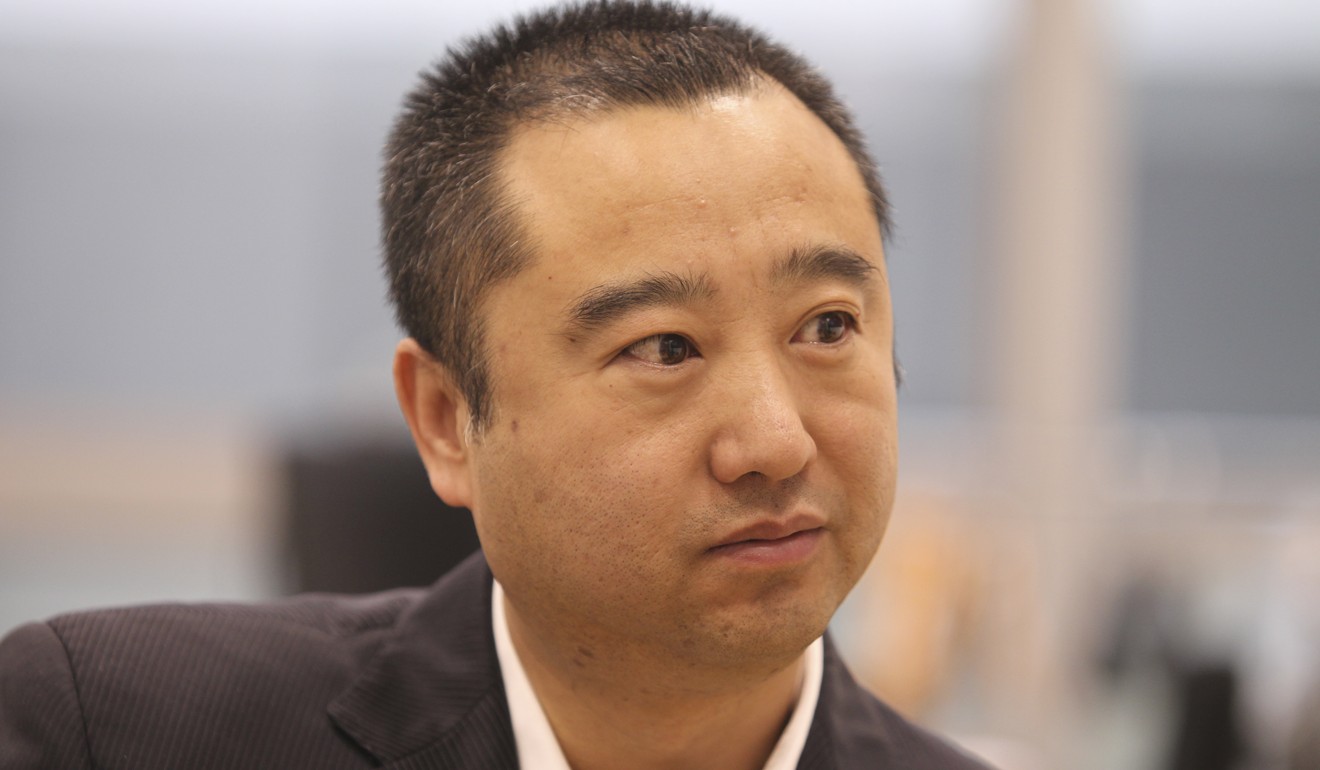
Can China's poorest province achieve its dream of becoming the next big data hub?
Mountainous Guizhou builds data centres but struggles to attract talent
An old Chinese saying sums up the natural challenges faced by Guizhou, the country’s poorest province: “Never three sunny days in a row; not one metre of road that isn’t bumpy.”
But those disadvantages have not stopped the mountainous inland region in southwest China from having big dreams about becoming the country’s big data hub.
Hu Yao, the 35-year-old co-founder of a data collecting and processing company in the provincial capital, Guiyang, remembers arriving in the city 12 years ago to study computer science at Guizhou University.
Arriving in Guiyang after a 12-hour train journey from his home village in neighbouring Hunan province, he found a city centre packed with narrow lanes and shabby buildings.
The Guanshan Lake District, now the city’s central business district and home to luxury hotels, banks’ regional headquarters and new office buildings, “was a barren hill, with only one muddy road connecting it to the downtown”, Hu said. His company is based in one of the office buildings.
Among the 45 postgraduate students in his class, Hu was one of eight who chose to work in Guiyang after graduation in 2009, and the only one to start his own business. The other seven found teaching jobs at the university.
“You cannot imagine how Guizhou has changed in the past few years thanks to the big data drive,” Hu said. “My company broke even last year. Everything has been going smoothly. My friends call me Mr Lucky.”

Guizhou and its capital were put on the fast track to economic growth in 2013, when Chen Miner became provincial governor and Chen Gang became Guiyang’s Communist Party secretary. Chen Miner had spent five years working in Hangzhou, a Chinese technology hub, and Chen Gang had worked in Beijing.
They stayed in Guizhou until last year, with Chen Miner being promoted to provincial party secretary in 2015, and embarked on an ambitious development drive, building motorways, roads and tunnels and inviting investment from home and abroad to turn the poverty-stricken province into a big data hub.
Guizhou, which has been touting its big data potential since 2014, was not the first part of China to pin its hopes on the industry. The poor, northwestern region of Ningxia scored an early victory in 2013 when it was chosen as the site of Amazon Web Services’ first data centre in the country.
After the central government highlighted big data as a priority in its 2014 work report as part of its efforts to encourage innovation and an upgrading of China’s economic structure, many city governments tried to jump onto the bandwagon, including Chongqing, Chengdu, Xian and Shanghai, to name just a few.

Big data can help to strengthen the security forces and thus state surveillance
“Big data and artificial intelligence are considered as the technology to shape the future and thus make China the leading technology power,” said Jinghan Zeng, deputy director of the University of London’s Centre for Politics in Africa, Asia and the Middle East.
“In order to get ahead in this game, China actually believes that it can take advantage of its one-party political system to mobilise the national resources towards this area.”
Local governments were given a political incentive to support the big data drive after it was declared a national strategy in 2015, and there is an economic pay-off as well, with financial transfers from the central government and preferential tax policies helping to propel local growth.
Guizhou, traditionally reliant on the coal, liquor and tobacco industries, has invested heavily in big data in the hope it could bring about an economic transformation. Fixed-asset investment in the information technology (IT) and software sector surged to 6.7 billion yuan (US$971 million) in 2016 – up 378 per cent from 1.4 billion yuan in 2014 – according to data compiled by Gavekal Dragonomics, a China-focused research house.
The provincial statistics bureau said fixed-asset investment in information transmission, software and information technology services in Guizhou totalled 18 billion yuan last year, up nearly 70 per cent year on year, while infrastructure investment rose 25.5 per cent to 675.7 billion yuan.
Thanks to the huge investment, Guizhou’s economic output grew 10.2 per cent last year, making it the fastest growing province in China and helping more residents escape poverty.

The provincial government has said more than seven million of the province’s 36 million inhabitants were lifted out of poverty between 2012 and 2016.
“Packaging Guizhou as a big data hub and selling it to investors around the world may be a smart idea,” said Gary Liu Shengjun, president of the China Financial Reform Institute in Shanghai. “However, it is too early to say it will be a successful model of economic transformation because what the local government has mainly achieved so far is getting companies to set up data centres there.”
China’s tough new cybersecurity law, which came into force in June last year, compels foreign businesses to save data containing information about Chinese consumers on mainland servers. To comply, Apple is now saving its iCloud data for mainland users on servers in Guizhou.
About an hour’s drive from downtown Guiyang, an 11.5 acre (4.6 hectare) data centre has been set up in a tunnel at an industrial zone in Anshun operated by Taiwan’s Hon Hai Precision Industry, the world’s largest electronics contract manufacturer and the maker of Apple’s iPhones.
Wedged between two mountains, the tunnel funnels air past thousands of servers, giving them free, natural cooling.
Only a few workers were seen in the vast space on a recent Wednesday afternoon. Two security guards at the Foxconn Green Tunnel Data Centre said they did not know if it was hiring people.
A few hundred metres away, farmer Luo Xianan was chopping down a tree in a Chuanxin village field, surrounded by the hens he has been raising for years.

“I don’t know what the company is doing here,” he said, puffing on a bamboo pipe. “I’ve never heard of any of our villagers working for that company.
“The only thing that concerns us is whether it has further plans to take over our land. After receiving the compensation, we may be able to move to the urban area.”
Guizhou’s cool weather, lack of earthquake risk, inexpensive land and cheap hydropower has lured many companies to set up data centres there. The list includes state-controlled telecommunications giants China Telecom, China Mobile and China Unicom and Guizhou Cloud Big Data, a company owned by the provincial government that is Apple’s local partner.
Other companies that have signed cooperation framework agreements or committed to investment in Guizhou include American semiconductor and telecommunications equipment company Qualcomm and Chinese technology companies Baidu, Tencent and Alibaba. Alibaba owns the South China Morning Post.
Gavekal Dragonomics economist Dan Wang said large data centres could be found in Utah, Nevada and Iowa in the United States and in Siberia and Iceland.
“By most criteria, Guizhou is a reasonable location for data centres,” he said. “But those are mostly low-end jobs, making sure that servers keep running in data centres. The type of high-value programming and processing work that actually makes use of the data often takes place somewhere else.

“Guiyang may have a lot of data centres, but its claim to be a centre of big data, as that term is usually understood, must be viewed with scepticism.”
Guiyang’s Global Big Data Exchange, which counts the city government as its major shareholder, was still searching for a sound business model three years after being set up, its executive vice-president, Zhu Guohui, said.
Problems defining the source and nature of data and the lack of laws governing data business had led it to shift focus from direct data transactions to data mining and algorithmic analysis, Zhu said. Although its cash flow had turned positive last year, the exchange was trying new business models and approaches and that required more IT talent.
Apple iCloud move cranks up hi-tech change in rural Guizhou
While the exchange was based in Guiyang, about two thirds of its hundred or so employees worked elsewhere.
“Our core R&D and model-building teams are in Beijing and Shanghai, the cities where most talent lives,” Zhu said.
People & Data, the company founded by Hu and Luo Lei in 2015, has a number of profitable operations. It is paid by governments for helping to collect migrant workers’ personal information and by banks for facilitating workers’ salary payments.

If we cannot attract enough talent to Guizhou in the coming two years, Guizhou will probably fail
Company chairman Luo, a Guizhou native who majored in finance at a Beijing university, said the biggest headache was attracting talent.
“What Guizhou has done is a prerequisite for big data business – good infrastructure, tax cuts, subsidies granted to talent and a supportive attitude from the government,” he said. “These may put Guizhou two years in advance of its peers. But if we cannot attract enough talent to Guizhou in the coming two years, Guizhou will probably fail.”
Mark Greeven, an associate professor at Zhejiang University and a research fellow at the National Institute for Innovation Management, said that even if Guizhou failed, China had a clear advantage in big data because a lot of big data was collected, stored and analysed.
“With the average high acceptance and connectivity of mobile digital technology, the exponential growth of big data in China cannot be ignored,” Greeven said. “Not only the government support is there, but also, the market, technology and capital necessary for real big data technology innovations.
“However, one major limitation is talent. Since talent supply in the relevant field is far under demand – actually not only in China but all over the world – it is perhaps one of the most crucial bottlenecks for big data technology and innovation development.”
While the jury is out on whether Guizhou’s big data drive will succeed, officials linked to it have been catapulted into prominent positions. Chen Miner, widely seen as a protégé of President Xi Jinping, was promoted to the party’s Politburo in October, and Chen Gang was appointed head of Xi’s ambitious Xiongan New Area project in Hebei province in June.

The exponential growth of big data in China cannot be ignored
Some small business operators in Guiyang say the embrace of technology has yet to pay off for them.
At the Liu Xi Yuan restaurant, manager Peng Long said the robots his boss had bought for 80,000 yuan apiece in 2015 had not worked out as planned.
“Local officials insisted small businesses like us should learn about what’s going on in big data and encouraged our boss to attend the China International Big Data Industry Expo in 2015,” Peng said.
The excited boss came back with a great interest in robots. After visiting a robot-themed hotpot restaurant in Changsha, the capital of Hunan province, he decided to introduce two robots to his restaurant in Guiyang.
At 5pm, the start of the traditional evening peak hour, the restaurant, big enough to accommodate 300 people, was almost empty.
Unlike many hotpot restaurants, which feature a big open area, Liu Xi Yuan serves traditional Guizhou cuisine and mostly consists of compartments that can hold up to 10 people. The robot waitresses ferry dishes from the kitchen to compartment gate, with a human waitress then transferring them to the table.
“My boss just ignored the fact that Guiyang people value their privacy and would prefer to sit in a compartment instead of an open area,” Peng said. “Without an open area, robots have no way to grab their attention.
“We just haven’t figured out how to integrate Guiyang’s hi-tech image into our small business.”

